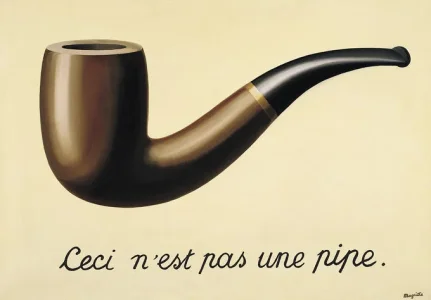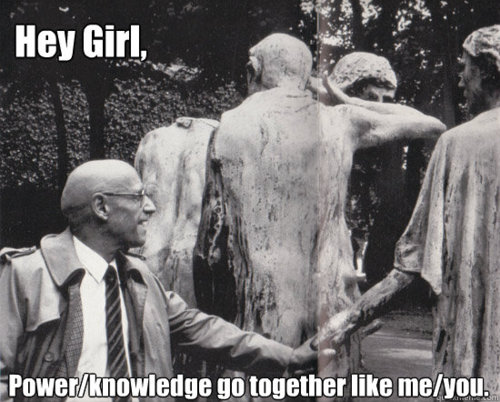You are using an out of date browser. It may not display this or other websites correctly.
You should upgrade or use an alternative browser.
You should upgrade or use an alternative browser.
what's your definition of FREEDOM???
- Thread starter Constant_Overstimulation
- Start date
More options
Who Replied?Here's a little challenge for you. Suppose you are "only as free as your mind allows you to be". Does that not imply that you are either completely free or completely unfree? On your definition, either your mind is constitutive of your free will, and then you are completely free; or it is not, and you are completely unfree.
If you really do believe that the mind is a separate entity, a kind of parallel subject existing alongside the self, why would it ever give the self any freedom? This does not seem to hold logically. I'm only teasing you by the way, or rather thinking out loud
You’re too good at this, I need to read it a couple of times more to catch on, next time I’m just going to say butterflies and then we could have a very amazing conversation around that where I can actually keep up
- MBTI
- xNTP
- Enneagram
- 6w5 649
What, no, don't do that. Don't just roll over and play dead.You’re too good at this, I need to read it a couple of times more to catch on, next time I’m just going to say butterflies and then we could have a very amazing conversation around that where I can actually keep up
But... but... but I’m so good at itWhat, no, don't do that. Don't just roll over and play dead.
Ren
Seeker at heart
- MBTI
- INFJ
- Enneagram
- 146
@Ren if freedom is an illusion, do you think that makes it less valuable than other... statuses I guess is the word?
I think the reason why you're having trouble finding the word might be because "freedom as an illusion" simply lacks a referent. If freedom is an illusion, freedom does not really exist, and so it cannot be ascribed any value, whether positive or negative. But I have a sneaking suspicion that you meant "if the experience of freedom is an illusion, does it make it less valuable than other experiences" - to this I would say no, it does not make it less valuable. But that's because of the kind of philosophical system I (by and large) subscribe to, as @Lady Jolanda knows (^^) which is a version of existentialism.
Existentialism takes experience as the basis of its valuation, so it doesn't really matter what is taken to be "real" or not, and in any case in Existentialism, a lot of what would be traditionally be taken to be real or unreal would be called into question. But if I were, say, a Kantian, then for sure freedom as an illusory experience would have little value. Personally, I would question the Kantian's ability to prove the truth of the illusory nature of freedom.
Ren
Seeker at heart
- MBTI
- INFJ
- Enneagram
- 146
Reason
Percolated
- MBTI
- INTP
Well there are plenty of things that don't exist that we ascribe value to. Characters in a work of fiction don't exist, and we know it but we still have value for them. The work of fiction exists, it is a thing albeit an intangible thing but the characters and situations therein, are nonexistent by their very nature. Yet they do hold value, positive or negative do they not?If freedom is an illusion, freedom does not really exist, and so it cannot be ascribed any value, whether positive or negative.
- MBTI
- xNTP
- Enneagram
- 6w5 649
Don't characters in work of fiction exist in the same way that concepts exist, as mental objects; the idea of it? And we certainly assign value to those.
Reason
Percolated
- MBTI
- INTP
Well I suppose, but we value the work of fiction because we understand it as someone's creation. But then we shouldn't have any emotional attachment to the characters because we know they're not real. We shouldn't have any stakes in how the story ends since it is unreal but we do. The work of art exists but the characters are no more real people than a pipe is a real pipe in a painting.Don't characters in work of fiction exist in the same way that concepts exist, as mental objects; the idea of it? And we certainly assign value to those.

Ren
Seeker at heart
- MBTI
- INFJ
- Enneagram
- 146
Ok, so let me attempt to clarify because I feel like many different understandings of "value" are being jumbled here.
A) I suggest that there is objective moral value, subjective moral value, objective aesthetic value, and subjective aesthetic value.
B) I understood the question about the value of freedom as: "Does freedom have objective moral value as a good thing?" I personally believe it does, but this is a difficult topic that philosophers don't agree on. I commit to the idea that in order to have objective moral value, something must objectively exist. Something can exist immaterially (a concept, a fictional character) though of course, the fact that something exists does not automatically ascribe it objective moral value.
C) A work of fiction, to me, can be argued to have either objective or subjective aesthetic value, but I have difficulty imagining that it could have moral value. If you think that a work of fiction has moral value, it's likely that it's not the work itself that has the value, but the ideas that it re-presents. Now maybe the "idea of freedom" could be valuated, but it would be different than "freedom" itself.
A) I suggest that there is objective moral value, subjective moral value, objective aesthetic value, and subjective aesthetic value.
B) I understood the question about the value of freedom as: "Does freedom have objective moral value as a good thing?" I personally believe it does, but this is a difficult topic that philosophers don't agree on. I commit to the idea that in order to have objective moral value, something must objectively exist. Something can exist immaterially (a concept, a fictional character) though of course, the fact that something exists does not automatically ascribe it objective moral value.
C) A work of fiction, to me, can be argued to have either objective or subjective aesthetic value, but I have difficulty imagining that it could have moral value. If you think that a work of fiction has moral value, it's likely that it's not the work itself that has the value, but the ideas that it re-presents. Now maybe the "idea of freedom" could be valuated, but it would be different than "freedom" itself.
Reason
Percolated
- MBTI
- INTP
aaand we've already reached the point where @Ren is frustrated by the lack of depth in my analysis, lol. I did my best with the question posed and it is at this point I should confess that i'm not as deeply engrossed in philosophy as many others on this site probably are.Ok, so let me attempt to clarify because I feel like many different understandings of "value" are being jumbled here.
A) I suggest that there is objective moral value, subjective moral value, objective aesthetic value, and subjective aesthetic value.
B) I understood the question about the value of freedom as: "Does freedom have objective moral value as a good thing?" I personally believe it does, but this is a difficult topic that philosophers don't agree on. I commit to the idea that in order to have objective moral value, something must objectively exist. Something can exist immaterially (a concept, a fictional character) though of course, the fact that something exists does not automatically ascribe it objective moral value.
C) A work of fiction, to me, can be argued to have either objective or subjective aesthetic value, but I have difficulty imagining that it could have moral value. If you think that a work of fiction has moral value, it's likely that it's not the work itself that has the value, but the ideas that it re-presents.
Ren
Seeker at heart
- MBTI
- INFJ
- Enneagram
- 146
there are many kinds of freedom
You shameless moral relativist
Icedream
Nothing more than a thought
- MBTI
- INFJ
You shameless moral relativist
Ren
Seeker at heart
- MBTI
- INFJ
- Enneagram
- 146
aaand we've already reached the point where @Ren is frustrated by the lack of depth in my analysis, lol. I did my best with the question posed and it is at this point I should confess that i'm not as deeply engrossed in philosophy as many others on this site probably are.
lol no! I just have a tendency to sound a little too serious (irksome academic habit) when I discuss "deep" topics I care about, but that does not involve judgments of any kind. On the contrary, it's rare enough that people engage in something like this and I always appreciate it a lot. Have a look at my latest blog entry, too, for my thoughts on the topic of debating being always useful
Ultimately, I have not the sweetest clue whether freedom has value or not... I can only make the best informed guesses.
Ren
Seeker at heart
- MBTI
- INFJ
- Enneagram
- 146
Reason
Percolated
- MBTI
- INTP
@Ren you're fine, I just struggle with life as a quasi-intellectual  . It is quite a bit easier than being a real intellectual you know, real intellectuals have a responsibility to use their mind for good, phony intellectuals get all of the credit with none of the work. I still enjoy trying at these types of conversations even though it's hopeless.
. It is quite a bit easier than being a real intellectual you know, real intellectuals have a responsibility to use their mind for good, phony intellectuals get all of the credit with none of the work. I still enjoy trying at these types of conversations even though it's hopeless.


